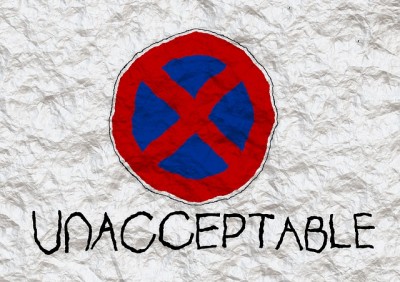In The Wall Street Journal a couple weeks ago, former Harvard Professor Ruth Wisse wrote about how we need to fight anti-Semitism through the Anti-Semitism Awareness Act, which requires the Department of Education to take the broad State Department definition of anti-Semitism into account when determining if an act can be deemed anti-Semitic in accordance with Title VI of the 1964 Civil Rights Act. In her article, she advocates for a crackdown against anti-Semitism, disregarding the First Amendment. To do as she suggests would be fallacious and irresponsible.
It’s also hypocritical. What would she say about Islamophobia or racism against other minorities? Her concern doesn’t extend to them. What if people made similar arguments about cracking down on “anti-white” rhetoric?
Wisse’s assessment creates a dangerous, slippery slope. Considering all the anti-Semitic conspiracy theories that Jews control the government, restricting free speech through this proposed legislation, which only addresses discrimination against our community, would only validate this bigotry.
Wisse, despite supporting it, goes on to criticize the bill as inadequate by framing anti-Semitism as a civil rights issue. “Were anti-Semitism historically a matter of discrimination alone, it could not have generated the extermination of the Jews of Europe or the perpetual Arab war against Israel,” she writes. “Discrimination is merely one byproduct of anti-Semitism, which in modernity is a political strategy, ideology and movement forged in 19th-century Europe, adapted by 20th-century Arabs, and now spreading in our midst.”
I agree that anti-Semitism is a deep-rooted historical phenomenon, which is exactly why it can’t be patched over with an ill-conceived bill.
Anti-Semitism existed long before the 19th century. You could argue its debut occurred after the destruction of the Second Temple by Rome in 70 C.E. It permeated the political and social environment of Medieval Europe, where blood libels and conspiracy theories, the Crusades, pogroms, the Spanish Inquisition, and other expulsions haunted Jews for centuries, eventually transitioning into the more modern anti-Semitism that Wisse describes. If the emancipation, the abolition of discriminatory laws against Jews in Europe, didn’t end the trouble for Western Europe’s Jews, congressional legislation certainly isn’t the cure either.
Wisse’s argument also counterproductively implies that Jewish suffering is exceptional. Like Jews, other minorities have faced long histories of persecution. For example, to enumerate on the bigotry faced by black people in America would take ages. From the Atlantic slave trade to Jim Crow Laws to the Civil Rights Act and to this day, racism has persisted.
Finally, Wisse ties her support for the bill with criticizing the Obama administration for abstaining and allowing for a United Nations resolution condemning Israel and declaring the West Bank “occupied Palestinian territory.” This criticism seems disjointed. While last month’s resolution may be, as Wisse puts it, “arguably the most prejudicial U.N. pronouncement since the 1975 resolution declaring that ‘Zionism is a form of racism and racial discrimination,’” the Anti-Semitism Awareness Act has little to do with the resolution and would unlikely remedy the international climate that concerns Wisse.
Ultimately, legislation is not the solution to bigotry. It can alleviate it systematically, but not psychologically. Even if there are laws to prohibit discrimination and prosecute hate crimes, legislation cannot fix the underlying problem. While anti-Semitism is still an issue today, the Jewish world cannot be reduced to fear – and, out of fear, push legislation that limits free speech, makes claims to an exclusive experience of persecution, and fails to actually remedy anti-Semitism.
“Memory is sacred, but victimhood cannot be the foundation stone of Jewish identity,” syndicated conservative columnist Charles Krauthammer wrote last March. “Traditional Judaism has 613 commandments. The philosopher Emil Fackenheim famously said that the 614th is to deny Hitler any posthumous victories. The reduction of Jewish identity to victimhood would be one such victory. It must not be permitted.”
Jackson Richman is a senior studying political science at George Washington University. He has interned at The Weekly Standard and The Daily Caller. He’s a frequent contributor for Red Alert Politics and American Action News. You can follow him on Twitter: @jacksonrichman.
![UNACCEPTABLE The Anti-Semitism Awareness Act is a free speech issue. | [Public Domain], via Pixabay](https://newvoices.org/wp-content/uploads/2013/12/UNACCEPTABLE.jpg)

